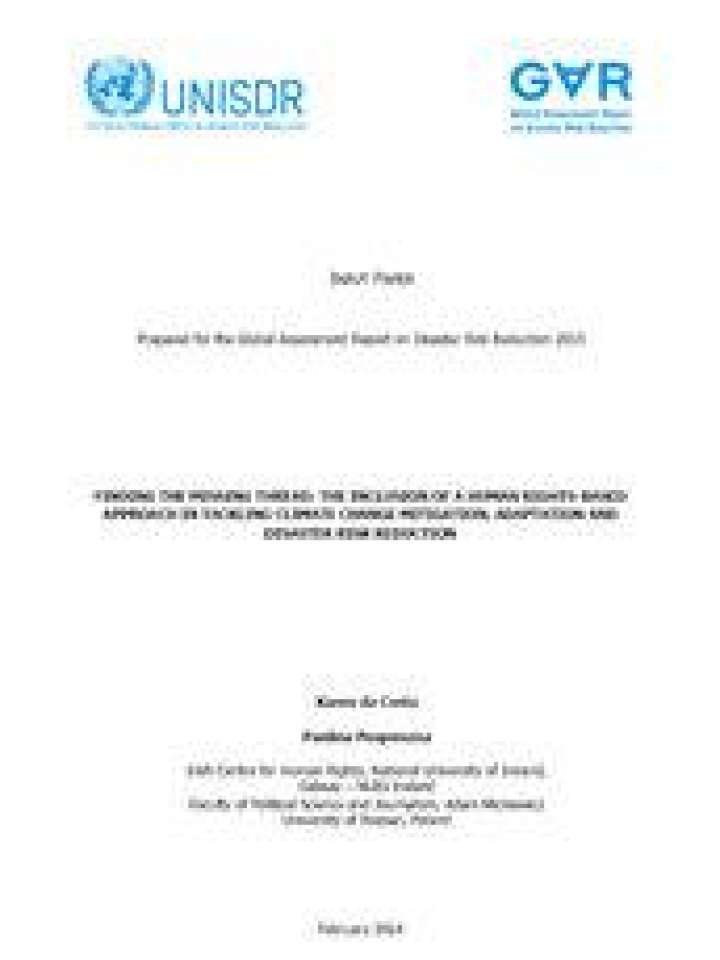Finding the missing thread: The inclusion of a human rights-based approach in tackling climate change mitigation, adaptation and disaster risk reduction
This paper argues that a human rights-based approach (HRBA), i.e. participation in political life, consultation of affected groups in decision-making processes, access to justice, due process, transparency and accountability, provides excellent tools towards a real positive change in disaster risk reduction (DRR), climate change adaptation and mitigation. The publication analyses case studies in Brazil, Dominican Republic, Ethiopia and Nepal.
The cases covered demonstrate the following:
- The mere existence of national legislation covering natural disasters including disaster risk reduction may not be sufficient, but that what enhances the protection of individuals from natural disasters is a rights-based approach to DRR, climate change adaptation and mitigation.
- Regardless of various ambitious policies on natural disasters, the authors argue that if such basic issues like human rights protection and empowerment of local communities are not addressed, this impedes the efficiency and effectiveness of efforts to reduce or manage disaster risk and climate change.
- The human-rights based approach not only links development goals to human rights standards, but more importantly calls for focusing on marginalised groups, empowerment and participation, and ensuring accountability of duty-bearers.
This document is an input paper of the 2015 Global Assessment Report on Disaster Risk Reduction.
Explore further
Country and region
Ethiopia
Dominican Republic
Brazil
Nepal
